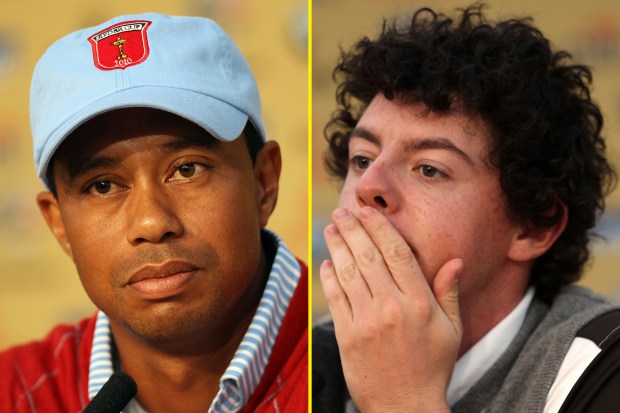Rory McIlroy and Tiger Woods share a close friendship today, even co-owning a business together. However, let’s rewind to 2010 when the relationship between these two iconic golfers was frosty at best.
The lead-up to the Ryder Cup at Celtic Manor was dominated by discussions about Woods. The 15-time major winner had only recently returned to the golfing scene following a prolonged hiatus triggered by a public scandal surrounding his personal life in 2009. What added fuel to the fire was the state of Woods’ game.
The world’s number one golfer had failed to secure a victory in an event for the first time since turning professional in 1997, and he did not automatically qualify for Team USA. Despite making a comeback with a respectable T4 finish at the Masters, the rest of his season took a downward spiral.
Even US team captain Corey Pavin found himself in a heated verbal exchange with a journalist who published quotes about Woods being a shoo-in for the team. Nevertheless, Woods was eventually chosen for the team, a decision that brought joy to McIlroy’s heart.
“I would love to face him,” McIlroy declared before the 2010 Ryder Cup. Considering that Woods had been McIlroy’s childhood idol, one might interpret this statement as an admirer yearning to fulfill a lifelong dream by competing against his hero. However, McIlroy left no room for ambiguity.
He went on to say, “Unless his game rapidly improves in the next month or so, I think anyone in the European team would fancy his chances against him.” It was a bold statement that could be likened to poking a bear, something that history has shown to be a risky endeavor when it comes to Woods, as Stephen Ames could attest.
In a manner reminiscent of Michael Jordan’s legendary competitiveness, Woods took McIlroy’s comments personally. When asked about his reaction to McIlroy’s words, Woods tersely replied, “Me too.” Pressed further to elaborate, Woods simply said, “No.”
Regrettably, the anticipated showdown between McIlroy and Woods never materialized in Newport. Nevertheless, both players could claim moral victories in their own right.


